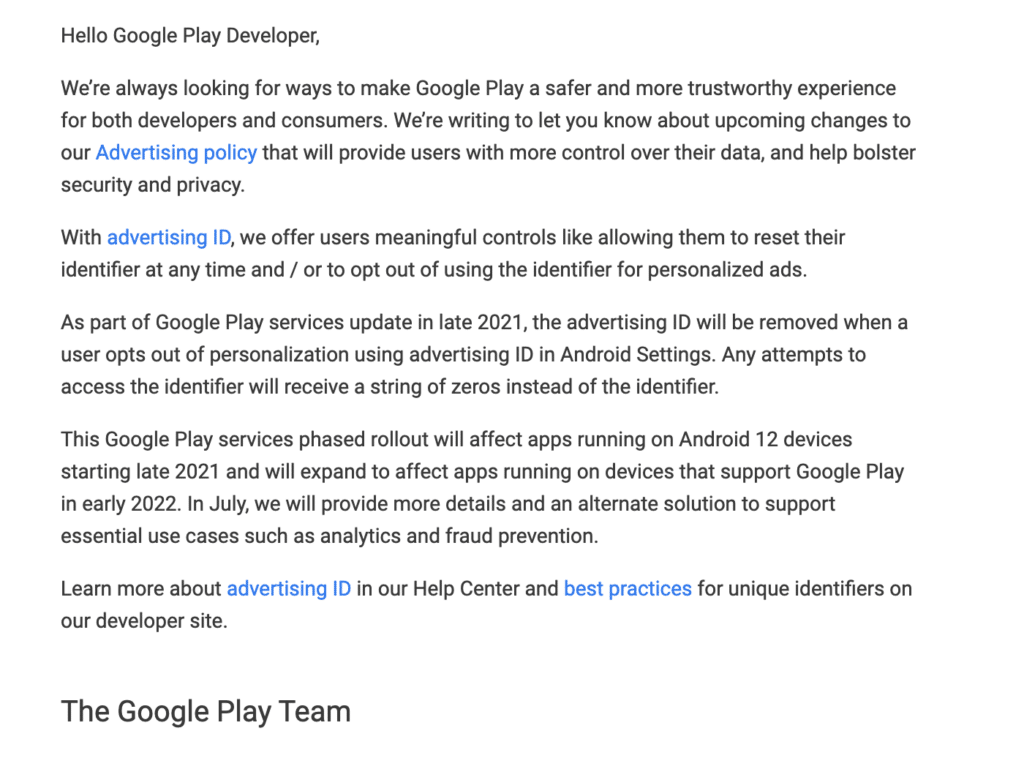Yesterday, Google shared an email update with developers about upcoming changes to the Android Advertising ID, also known as the GAID:

Google also published a help document further explaining the update.
What does this change mean for mobile attribution?
Android users have been able to opt out of ads personalization since 2013. This system-level setting functioned similarly to the Limit Ad Tracking feature on iOS, with one key difference: on iOS, when LAT was enabled, the IDFA (Identifier For Advertisers) became a string of zeros. On Android, the GAID value was still available for use in attribution, fraud protection, and analytics, but came accompanied with a flag indicating the user’s opt-out preference for ad targeting.
When this update takes effect later in 2021, that will change. In other words, when an Android user enables the Opt out of Ads Personalization setting in future, their GAID will become a string of zeros. This will help apps better respect the privacy preferences of their users.
Fortunately for app developers and advertisers, Google has indicated that deterministic ad attribution can still be done for opted-out users via alternative, privacy-preserving methods such as the Google Play Install Referrer and gclid parameter.
How does this compare with iOS’s AppTrackingTransparency policy?
On the surface, this change sounds similar to the recent user privacy changes in iOS 14. But is that really the case?
The short answer is no, Google’s upcoming changes aren’t “ATT for Android.” In fact, a better comparison would be to LAT on iOS versions prior to iOS 14.
Going a level deeper, there are two key differences that illustrate the contrast between these policies on iOS and Android:
- On iOS 14.5+, the ATT policy requires users to be prompted for “tracking” individually in every app. On Android, the opt-out setting will remain a device-level toggle that users may enable if they choose. Historically, users on Android have been much less likely to enable this opt-out.
- The iOS ATT policy contains technical restrictions on IDFA access, but also includes policy limitations for alternative attribution methods. On Android, the GAID will be zeroed out for opted-out users, but deterministic, device-level attribution will continue to be possible via alternative methods. This means that ad campaign measurement on Android should remain relatively unaffected.
Overall, along with Google’s recent announcement of a new safety section in Google Play, this is a welcome move that will improve user privacy protections for Android users. Even better, it shouldn’t result in major disruption to the mobile ecosystem. Branch is working together with Google to ensure that attribution on Android remains reliable for our customers.

